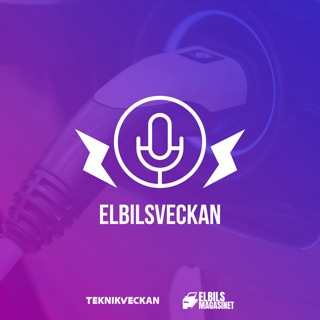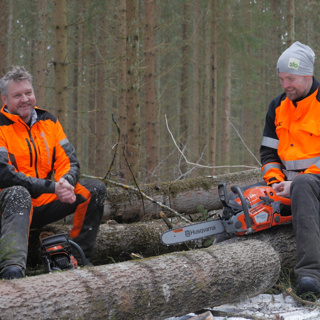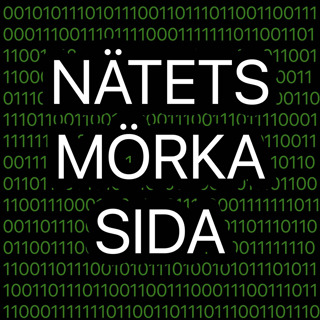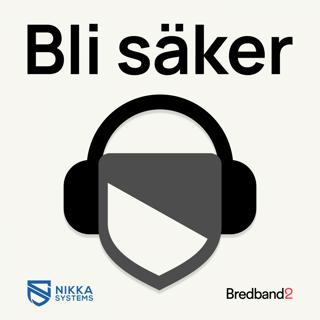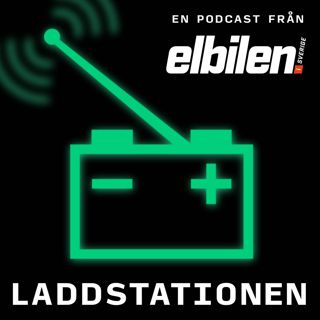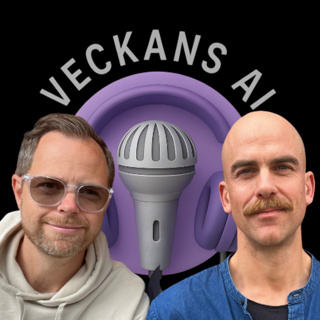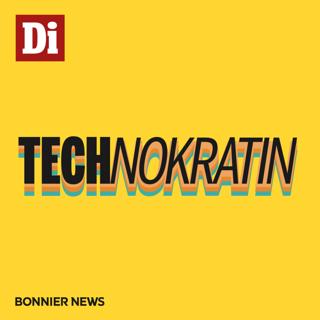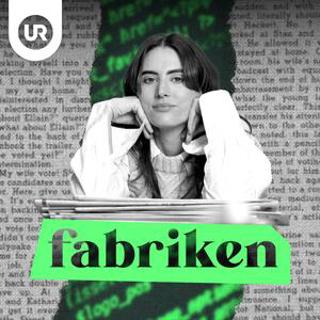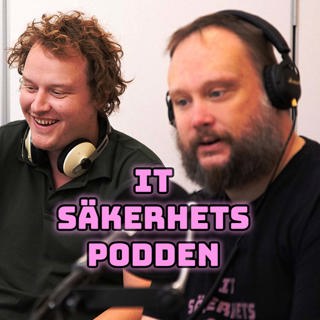
David Johnston: Morpheus's Fair Launch Attracts $400M in stETH to Build Network of AI Agents
David Johnston discusses the Morpheus project, which aims to build a free future by providing individuals with their own personal AI. The project attracted significant interest and support through a fair launch, where users could stake their ETH and contribute to the project in exchange for tokens. The Morpheus network acts as a coordination platform between personalized AIs and a global network of services. The network uses a smart agent rank algorithm to recommend the best smart agents for specific tasks based on factors like reputation and usage. The fair launch model and token economics of Morpheus have attracted attention and may inspire other projects to adopt similar approaches. Morpheus Network has different buckets for rewarding contributors, including the code bucket, compute bucket, community bucket, capital bucket, and protection fund bucket. The code and compute buckets are important for providing value to the network. The code bucket rewards those who build the platform, while the compute bucket rewards those who provide computing resources. The community bucket rewards the builders of smart agents, and the capital bucket rewards those who provide capital. The protection fund bucket is for handling audits, bounties, and recovering from attacks. The network aims to strike a balance between proof of stake and proof of work. David's Twitter - https://twitter.com/DJohnstonEC Chapters 00:00 Introduction to Morpheus and its Goals 03:18 The Fair Launch Model and Attracting Support 05:16 The Role of the Morpheus Network 10:29 The Smart Agent Rank Algorithm 25:53 Understanding the Reward Mechanism 31:08 Rewarding Smart Agents and Compute Providers 34:56 Directing Rewards with Morpheus Token Holders 38:45 Creating an Ecosystem for Developers 45:01 Rewarding App Builders and Preventing Centralization 46:28 The Potential of Decentralized AI Models Disclosures This podcast is strictly informational and educational and is not investment advice or a solicitation to buy or sell any tokens or securities or to make any financial decisions. Do not trade or invest in any project, tokens, or securities based upon this podcast episode. The host and members at Delphi Ventures may personally own tokens or art that are mentioned on the podcast. Our current show features paid sponsorships which may be featured at the start, middle, and/or the end of the episode. These sponsorships are for informational purposes only and are not a solicitation to use any product, service or token.
2 Maj 202450min

Michael, Ming and Jason of 0G Labs: Building A Modular Chain Specifically for AI
0G Labs is building the world's first modular AI chain that enables on-chain storage of training data, models, and the entire stack for crypto AI. Their DA layer provides high throughput and scalability, with a performance difference of 50,000 times better and 100 times cheaper than existing solutions. They aim to achieve Web2 parity on-chain for AI and promote transparency, traceability, and democratization of AI. 0G Labs is focused on making AI a public good and ensuring verifiability and alignment of models. Their roadmap includes launching the base infrastructure, introducing custom consensus, and expanding AI support and capabilities. Michael's Twitter - https://twitter.com/mheinrich Ming's Twitter - https://twitter.com/spark_ren Jason's Twitter - https://twitter.com/zenghbo Chapters 00:00 Introduction 17:42 The DA Layer: High Throughput and Scalability 29:13 Promoting Transparency and Democratization of AI 38:54 Differentiators of Zero G Labs 51:28 Roadmap and Future of Crypto AI Disclosures This podcast is strictly informational and educational and is not investment advice or a solicitation to buy or sell any tokens or securities or to make any financial decisions. Do not trade or invest in any project, tokens, or securities based upon this podcast episode. The host and members at Delphi Ventures may personally own tokens or art that are mentioned on the podcast. Our current show features paid sponsorships which may be featured at the start, middle, and/or the end of the episode. These sponsorships are for informational purposes only and are not a solicitation to use any product, service or token.
29 Apr 202455min

Andrej Radonjic: Grass's Two Million Data Scraping Users Enabling Crypto x AI on Solana
GRASS (GetGrass.io) is a viral crypto AI project built on Solana that aims to scrape and validate internet data for AI training. The name 'GRASS' was chosen for its memeability and metaphors. The project addresses the scarcity of quality data and the control of web data by a few companies. It also tackles the unfairness of companies scraping data from residential networks without compensating users. GRASS is a network of 2 million devices that scrape and clean web data in real-time. The data collected by GRASS can be used for training specialized AI models, fine-tuning models, and real-time inference. GRASS is a web scraping protocol that aims to democratize access to public web data and enable the creation of AI models. The protocol allows users to download a browser extension or mobile app that scrapes data from websites and contributes it to the GRASS network. The data is then validated and stored on a decentralized network of nodes. GRASS aims to provide transparent and verifiable data, ensuring fairness and preventing bias in AI models. The protocol is built on the Solana blockchain for its speed, scalability, and innovation. Andrej's Twitter - https://twitter.com/0xdrej Chapters 00:00 - Introduction to GRASS 17:00 - Utilizing GRASS Data for AI Models and Inference 26:04 - Amassing Users and the Mission of GRASS 34:26 - Transparency and Privacy in Data Collection 44:36 - Tracking and Authenticating Data Sources 55:05 - Representing Every Region and Culture Disclosures This podcast is strictly informational and educational and is not investment advice or a solicitation to buy or sell any tokens or securities or to make any financial decisions. Do not trade or invest in any project, tokens, or securities based upon this podcast episode. The host and members at Delphi Ventures may personally own tokens or art that are mentioned on the podcast. Our current show features paid sponsorships which may be featured at the start, middle, and/or the end of the episode. These sponsorships are for informational purposes only and are not a solicitation to use any product, service or token.
22 Apr 202457min

Decentralization Unleashed: The Astria Approach to Rollup Sequencing
Josh, the co-founder of Astria, discusses the journey from data availability layers to building a shared sequencer network. He explains the concept of shared sequencing and its advantages, such as amortizing the cost of engineering and providing a competitive experience for rollup developers. He also addresses the trade-offs and constraints of using a shared sequencer, including the block time and potential lock-in. Josh highlights the target market for shared sequencers and the potential value accrual in a world where multiple rollups tap into the same shared sequencer. Astria is focused on building a shared sequencer for rollups, which allows for faster and more cost-effective transactions. The market is still evaluating the cost and security trade-offs of shared sequencers versus centralized providers. The architecture of a shared sequencer relies on a distributed network, but it remains to be seen if it can be cost-competitive in the market. There is also an ideological question of where to draw the line between a developer building an app-specific rollup on a centralized sequencer and writing to a base layer. The landscape of optimistic rollups versus ZK rollups is constantly evolving, with ZK technology progressing significantly. Base sequencing refers to rollups that are purely dependent on the block producers of the L1, while shared sequencing involves a separate sequencing layer. Astria's go-to-market strategy involves vertically integrating and building their own rollups on top of the shared sequencer to demonstrate its viability. Josh's Twitter - https://twitter.com/Jskybowen Chapters 00:00 Introduction and Background 17:14 Target Market for Shared Sequencers 25:11 Value Accrual in a World with Shared Sequencers 32:41 The Evolving Landscape of Optimistic Rollups and ZK Rollups 44:11 The Definition and Challenges of Base Sequencing 50:41 Astria's Go-to-Market Strategy: Vertically Integrating and Building Their Own Rollups Disclosures Disclosures: This podcast is strictly informational and educational and is not investment advice or a solicitation to buy or sell any tokens or securities or to make any financial decisions. Do not trade or invest in any project, tokens, or securities based upon this podcast episode. The host and members at Delphi Ventures may personally own tokens or art that are mentioned on the podcast. Our current show features paid sponsorships which may be featured at the start, middle, and/or the end of the episode. These sponsorships are for informational purposes only and are not a solicitation to use any product, service or token.
18 Apr 202457min

Gui Laliberte and Avichal Garg: Integral's Accounting Suite Driving Backoffice to Zero
Integral is a financial operations and accounting platform for companies with Web3 assets. It simplifies financial workflows and provides real-time access to financial information. The platform saves businesses time and frustration by automating tasks such as bookkeeping, payroll, and payments. Integral enables companies to manage their crypto assets, track transactions, and generate financial statements easily. It also facilitates global operations, complex money flows, and multiple asset classes. The platform is part of the larger transformation in capital formation and the redefinition of companies in the Web3 era. Integral is an accounting software for the future of composable Web3 companies. It aims to facilitate the operations of businesses beyond just accounting, including tax, payments, payroll, and financial planning. By providing accurate and real-time data on business finances, Integral enables founders and large corporations to make better decisions and manage their assets more effectively. The platform also offers benefits such as reducing the need for internal controllers, automating processes, and improving efficiency. Integral serves a range of clients, including startups, large brands like Nike, and VC firms. The company is also exploring the use of AI to enhance legibility and provide proactive recommendations. Gui's Twitter Avi's Twitter Drew's Twitter Chapters 00:00 - Introduction and Background 08:39 - Overview of Integral and its Benefits 31:25 - The Composable Nature of Integral in the Web3 Era 45:13 - Enhancing Legibility and Providing Proactive Recommendations with Integral Disclosures Disclosures: This podcast is strictly informational and educational and is not investment advice or a solicitation to buy or sell any tokens or securities or to make any financial decisions. Do not trade or invest in any project, tokens, or securities based upon this podcast episode. The host and members at Delphi Ventures may personally own tokens or art that are mentioned on the podcast. Our current show features paid sponsorships which may be featured at the start, middle, and/or the end of the episode. These sponsorships are for informational purposes only and are not a solicitation to use any product, service or token. Delphi’s transparency page can be viewed here.
16 Apr 20241h 5min

Tory Green: io.net’s 500,000 GPUs Powering Crypto x AI on Solana
io.net is a distributed training and inference project built on Solana. They aim to solve the problem of the GPU shortage in the AI industry by building a decentralized network that connects underutilized GPUs from multiple sources. Ionet uses clustering technology to combine GPUs from different geographic locations, allowing for more efficient and cost-effective AI compute. They are attracting both web2 and web3 customers, with a focus on inferencing, which makes up the majority of the market. The goal is to decentralize the AI ecosystem and prevent big tech companies from controlling all aspects of AI. io.net is a decentralized AI network that provides GPU compute power for AI workloads. They are focused on solving the compute aspect of decentralized AI and offer a network of choice for users to perform inference, fine-tuning, and training. The team is driven by a sense of urgency and executes quickly, following operational best practices. They have a disciplined go-to-market approach, targeting Series A to seed-generated AI companies. io.net aims to be the currency at the center of decentralized AI and is exploring the possibility of building a decentralized model marketplace and expanding into other areas like gaming and zero knowledge. Tory's Twitter Chapters 00:00 Introduction to Ionet 01:03 Solving the GPU Shortage 13:24 Attracting Web2 and Web3 Customers 27:51 Building a Decentralized Model Marketplace 29:47 The Role of Crypto in Incentivizing Participants 32:37 Easy Onboarding for GPU Workers 34:00 Organic Demand and Onboarding Sales Process 37:20 Choice and Flexibility in Compute Options 43:22 Conquering the Three Key Stakeholders in Decentralized AI Disclosures Disclosures: This podcast is strictly informational and educational and is not investment advice or a solicitation to buy or sell any tokens or securities or to make any financial decisions. Do not trade or invest in any project, tokens, or securities based upon this podcast episode. The host and members at Delphi Ventures may personally own tokens or art that are mentioned on the podcast. Our current show features paid sponsorships which may be featured at the start, middle, and/or the end of the episode. These sponsorships are for informational purposes only and are not a solicitation to use any product, service or token. Delphi’s transparency page can be viewed here.
8 Apr 202456min

Degen Chain and L3s: What's Next
The conversation explores the concept of Layer 3 (L3) blockchains and their potential impact on the crypto industry. L3s offer unlimited customizations with near-zero gas fees, allowing for limitless creativity and experimentation. The discussion focuses on Degen, a community built on the L3 chain, and its journey from a tipping functionality on Forecaster to launching its own L3. The founders of Syndicate, the team behind Degen's L3, explain the need for L3s and the benefits they provide to different types of applications. The conversation also touches on the future of L3s and the potential for further customization. Degen Chain, an L3 solution built on top of Ethereum, offers low gas fees and customization options for developers. The ability to customize blockchains is seen as a powerful feature, and Degen Chain aims to pull customizations from startups specializing in that space. L3s are designed for customized functionality, while L2s are for scaling. Interoperability between L3s is a vision that many in the space are pursuing, and there are different approaches to achieving it. The security and value capture of Ethereum are important considerations, but the focus should be on usage and adoption. Degen Chain is just the beginning, and there is excitement about the future development and growth of on-chain communities. Ian's Warpcast Will's Warpcast Jacek's Warpcast Chapters 00:00 Introduction and Disclosures 01:06 Understanding Layer 3 (L3) Blockchains 11:50 Benefits of L3s for Different Types of Applications 29:18 Degen Chain: Low Gas Fees and Customization 31:06 L3s vs L2s: Customized Functionality vs Scaling 32:04 Interoperability: A Vision for L3s 34:32 Usage and Adoption: The Key Metrics 36:30 The Future of On-Chain Communities Disclosures Disclosures: This podcast is strictly informational and educational and is not investment advice or a solicitation to buy or sell any tokens or securities or to make any financial decisions. Do not trade or invest in any project, tokens, or securities based upon this podcast episode. The host and members at Delphi Ventures may personally own tokens or art that are mentioned on the podcast. Our current show features paid sponsorships which may be featured at the start, middle, and/or the end of the episode. These sponsorships are for informational purposes only and are not a solicitation to use any product, service or token. Delphi’s transparency page can be viewed here.
3 Apr 202459min

Nous Research: Crypto x AI Masterclass, 30 Million Model Downloads, Bittensor Subnets and Launching a Matrix Style World Simulator
In this conversation, Jeff from Nous Research discusses their work on open source models and the BitTensor subnet. They address the challenges of ranking models on platforms like Hugging Face and the need for a more reliable and commercially viable model ranking system. Nous Research has developed Nous Hermes, an open source model that can be fine-tuned to follow specific instructions. They also created the BitTensor subnet, which allows developers to submit their models and rank them against synthetic data generated by GPT-4 and Claude. The goal is to approximate the state-of-the-art models and incentivize the creation of high-quality models. The conversation explores the potential of synthetic data generation, the future of model selection, the world simulator and amorphous applications, the intersection of AI and crypto, concerns and risks in the crypto AI space, the inevitability of AGI, the role of crypto in AI, regulation and over-regulation in crypto AI, the potential interaction between AGI and centralized systems, proof of personhood and verifying authenticity, and Nous Research's mission and focus. Jeffrey's twitter Chapters 00:00 Introduction to Noose Research and Open Source Models 07:12 Overview of Nous Hermes and Fine-Tuning Models 26:30 Challenges with Open Source Models and the Need for BitTensor 32:10 Ranking and Reputation in BitTensor Subnet 34:27 Approaching GPT-4 with BitTensor 37:42 The Potential of Synthetic Data Generation 39:07 The Future of Model Selection 41:29 The World Simulator and Amorphous Applications 44:48 The Intersection of AI and Crypto 48:32 Concerns and Risks in the Crypto AI Space 51:17 The Inevitability of AGI 53:35 The Role of Crypto in AI 56:01 Regulation and Over-Regulation in Crypto AI 58:52 The Potential Interaction Between AGI and Centralized Systems 01:05:24 Proof of Personhood and Verifying Authenticity 01:10:04 Nous Research's Mission and Focus 01:12:26 Attracting AI Developers to Nous Research Disclosures Disclosures: This podcast is strictly informational and educational and is not investment advice or a solicitation to buy or sell any tokens or securities or to make any financial decisions. Do not trade or invest in any project, tokens, or securities based upon this podcast episode. The host and members at Delphi Ventures may personally own tokens or art that are mentioned on the podcast. Our current show features paid sponsorships which may be featured at the start, middle, and/or the end of the episode. These sponsorships are for informational purposes only and are not a solicitation to use any product, service or token. Delphi’s transparency page can be viewed here.
30 Mars 20241h 15min



